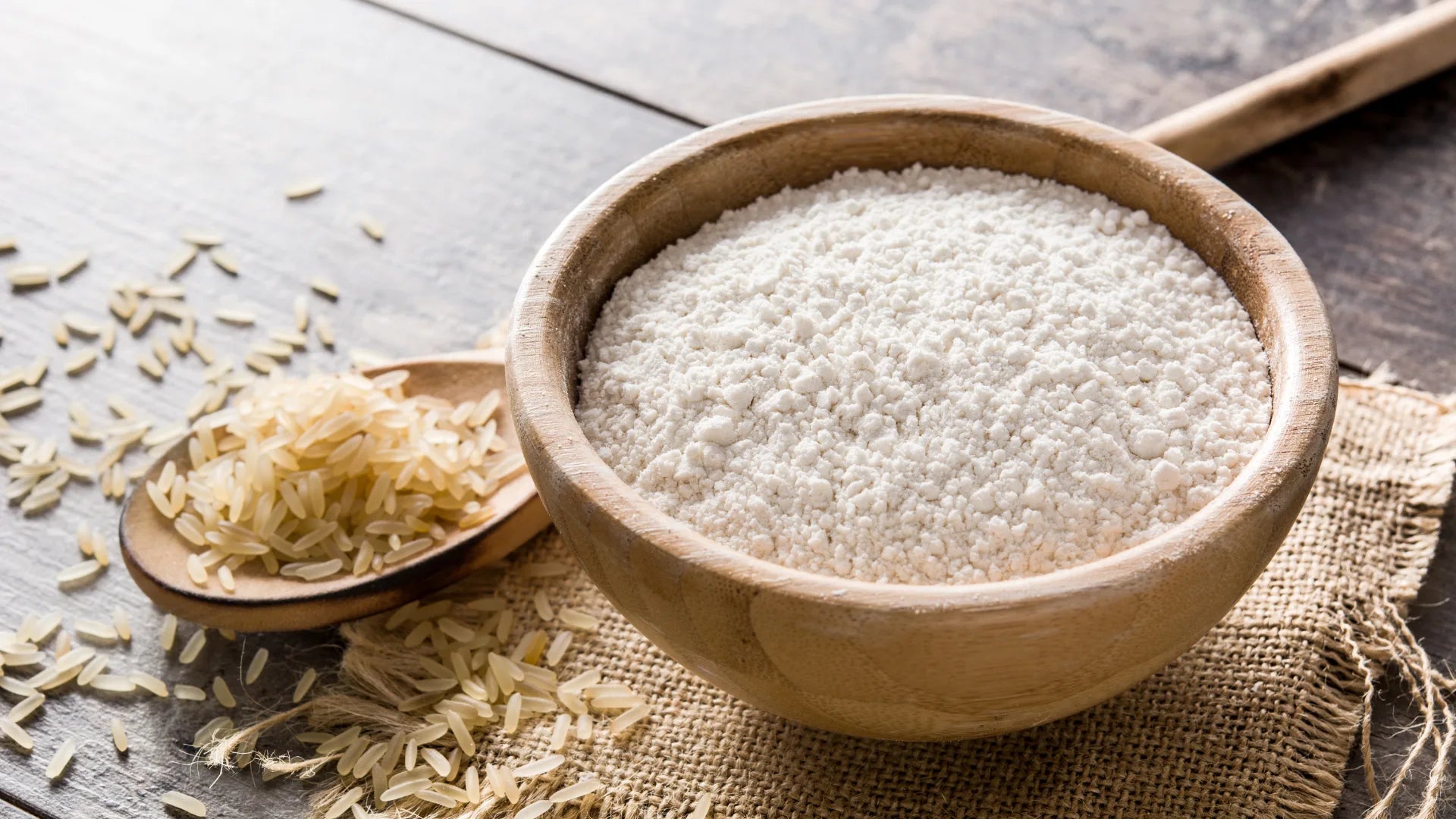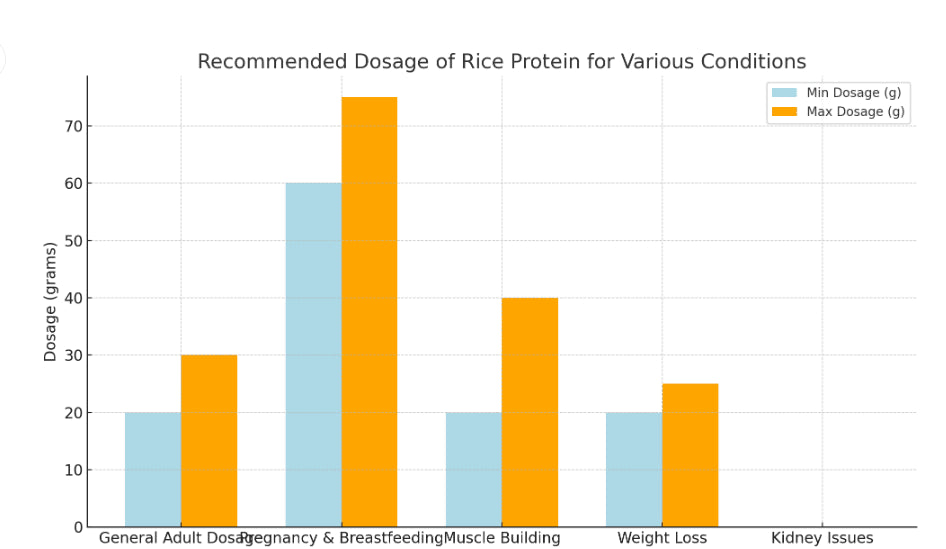
Rice protein is a plant-based protein, typically sourced from brown rice. It's made by isolating the protein from rice grains through processes like enzymatic extraction or fermentation. [1] These methods separate the protein from the rice's carbohydrates and fiber, resulting in a nutrient-dense, high-quality protein powder.
Rice protein is valued for its versatility, digestibility, and hypoallergenic nature, making it an ideal choice for those with dietary restrictions or allergies. [2] It's commonly used in protein powders, bars, and health foods, especially in vegan and hypoallergenic formulations. Additionally, it's gluten-free, dairy-free, and soy-free, making it suitable for individuals with sensitivities or those following plant-based diets.
1) Rice protein is a key ingredient in the Miduty Shape Me Up Supplement. Miduty uses the highest quality rice protein isolate, extracted with advanced methods to retain maximum nutritional value. Naturally hypoallergenic, rice protein is free from common allergens like dairy, soy, and gluten, making it a safer option for those with food sensitivities or intolerances.
2) In addition to being gentle on digestion, rice protein is also highly sustainable, offering a clean, eco-friendly source of plant-based protein.
3) While rice protein is often incomplete on its own, Miduty's formula enhances its amino acid content, ensuring a broader profile, including essential amino acids like methionine, which are typically low in plant-based proteins.
4) Miduty's Rice Protein is exceptionally easy on the stomach, making it ideal for individuals with digestive sensitivities.
5) Unlike other proteins that may cause bloating or discomfort, Miduty's rice protein provides smooth digestion and absorption.
| Uses & Benefits | Description |
| Supports Muscle Growth and Recovery | Rice protein is rich in essential amino acids that support muscle growth and repair. After a workout, it helps rebuild muscle fibers, reduce soreness, and promote recovery. [3] It’s an ideal choice for athletes and fitness enthusiasts on a plant-based or vegan diet. |
| Supports Weight Loss and Management | Protein helps with weight loss by increasing fullness and controlling appetite. [4] Rice protein, with its high satiety, reduces hunger and cravings, helping to manage calorie intake. Including it in meals or snacks can prevent overeating and support muscle mass. |
| Supports Immune Health | Rice protein provides essential amino acids like glutamine, which support the production of immune cells and antibodies. [5] These help the body fight infections and maintain a strong immune system, making rice protein beneficial during stress or illness. |
| Promotes Digestive Health | Rice protein is easy to digest and less likely to cause bloating or discomfort. Those with sensitive stomachs or digestive issues (like irritable bowel syndrome or lactose intolerance) can tolerate rice protein better. Additionally, rice protein helps to improve the gut’s health by supporting the growth of healthy gut bacteria. [6] |
| Ideal for Those with Food Sensitivities | Rice protein is hypoallergenic and less likely to cause allergic reactions compared to dairy, eggs, or soy. It’s a safe option for those with food sensitivities like lactose intolerance, soy allergies, or gluten sensitivity. [7] Being dairy-free, it’s also ideal for vegans and those avoiding animal products. |
| Helps in Detoxification and Liver Health | Rice protein supports liver function by aiding the production of enzymes that detoxify the body and break down waste. It helps clear toxins and promotes overall health, making it ideal for detox programs or maintaining liver health. |
| Supports Healthy Hair, Skin, and Nails | Rice protein contains amino acids like cysteine, essential for keratin production, which strengthens hair, skin, and nails. [8] It supports skin elasticity and hydration, making it a great choice for improving appearance and skin health. |
| Helps Stabilize Blood Sugar Levels | Protein helps stabilize blood sugar by slowing sugar absorption when paired with carbs. [9] Rice protein is especially useful for managing blood sugar levels and preventing energy spikes and crashes, making it beneficial for those with insulin resistance. |
The adequate dosage of Rice Protein can vary depending on age, health status, and specific needs.

1. General Adult Dosage: The typical recommended dosage for adults is 20-30 grams per day. This can be consumed as a single serving or divided throughout the day. It is often taken post-workout or as a supplement to meals to support protein intake.
2. Pregnancy and Breastfeeding: Protein needs increase during pregnancy for both maternal health and fetal development, with an intake of 60-70 grams per day recommended. Rice protein can be a helpful supplement, but always consult a healthcare provider before adding any supplements. Breastfeeding mothers also need more protein, typically 65-75 grams per day, and rice protein can be included. It’s best to consult a doctor or nutritionist for guidance.
3. Muscle building: Individuals seeking to increase muscle mass may benefit from 20-40 grams of rice protein per day, especially after workouts, to help with muscle recovery and growth.
4. Weight loss: For those looking to lose weight, rice protein can be helpful in maintaining muscle mass. A daily dose of 20-25 grams may help in reducing hunger and promoting satiety without excess calories.
5. Kidney issues: People with kidney conditions should consult their doctor before increasing protein intake, as excessive protein might strain kidney function.
1) Post-Workout: Immediately after a workout (within 30-60 minutes) is the optimal time for protein intake, as your muscles are in recovery mode and need protein to repair and grow. Rice protein, being a fast-digesting protein, helps speed up muscle recovery and replenishment.
2) Meal Supplementation: If you are struggling to meet your daily protein intake, you can incorporate rice protein into your meals. It can be added to smoothies, shakes, or even baked goods, providing a plant-based protein boost.
3) In the Morning: After a night of fasting, your body is in need of protein for muscle maintenance and recovery. A protein shake with rice protein can kickstart your metabolism and help sustain muscle mass throughout the day.
4) Before Bed: Consuming protein 30-60 minutes before bed can help with overnight muscle repair and growth. Although rice protein digests quickly, it still provides a steady supply of amino acids to support muscle maintenance during sleep.
5) As a Snack: For those looking to manage hunger or maintain stable energy levels, a rice protein shake can help curb appetite and provide lasting energy without excess calories.
1. Digestive Issues: Some people may experience bloating, gas, or mild stomach discomfort when consuming rice protein.
2. Allergic Reactions: Although rare, some people may have an allergic reaction to rice protein. Symptoms can include itching, rash, or swelling.
3. Nutrient Imbalance: Excessive reliance on protein supplements without a balanced diet may lead to nutrient imbalances or deficiencies. If using rice protein as a primary protein source, consider combining it with other plant-based proteins (like pea or hemp protein) to create a more balanced amino acid profile.
4. Kidney Strain (in specific conditions): High protein intake can strain kidney function, particularly in individuals with pre-existing kidney issues.
5. Combine with Other Protein Sources: Rice protein is an incomplete protein on its own because it lacks sufficient amounts of certain essential amino acids (such as lysine). To ensure you’re getting a complete profile of amino acids, consider combining it with other plant-based proteins like pea, hemp, or chia protein.
6. Hydrate Well: Ensure you drink enough water throughout the day to stay hydrated, particularly when taking rice protein post-workout.
Rice protein offers a wealth of benefits, making it an ideal supplement for those seeking a plant-based, easily digestible protein source. Whether you're focused on muscle growth, weight management, or improving your overall health, rice protein can fit seamlessly into your daily routine.
Its hypoallergenic nature and versatility make it a great choice for individuals with food sensitivities or allergies, while its high amino acid profile supports various bodily functions. Incorporating rice protein into your diet can support your fitness goals, and immune health, and even enhance skin, hair, and nail strength.
For those looking for a clean, plant-based protein option that covers multiple health benefits, rice protein provides an excellent solution.
Rice protein, especially from brown rice, supports muscle recovery and growth thanks to its content of essential amino acids, including BCAAs. It's gentle on digestion, hypoallergenic, and a great option for individuals with sensitivities to dairy or soy. It also helps with weight management by promoting satiety and maintaining lean muscle.
Yes, rice protein, especially hydrolyzed rice protein can benefit the skin by boosting hydration, improving elasticity, and supporting collagen production. It also helps strengthen the skin's natural barrier, making it useful in skincare products for a smoother, more resilient complexion.
Yes, rice protein is generally easy to digest. It's a plant-based, hypoallergenic protein that's gentle on the stomach, making it a suitable choice for people with digestive sensitivities or allergies to dairy, gluten, or soy.
Rice protein may cause gas in some individuals, though it's not a common side effect for everyone. The digestive process, especially due to certain amino acids like cysteine and methionine, can sometimes lead to increased gas production in sensitive people.
Yes, rice protein is good for hair as it helps strengthen strands, improve elasticity, and enhance shine. It's commonly used in hair care products to reduce breakage, support growth, and add volume, making hair look healthier and more resilient.
